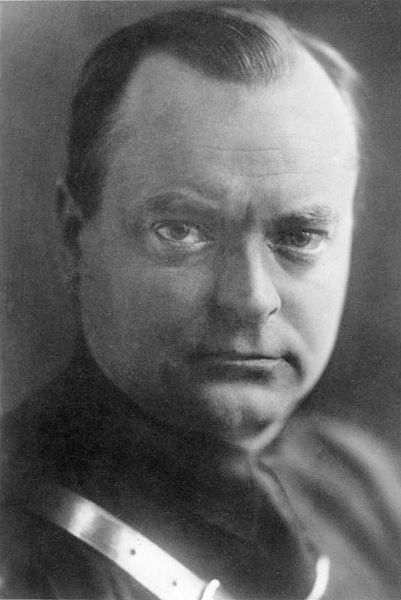<Back to Index>
- Physiologist Johann Friedrich Blumenbach, 1752
- Sculptor Jean Baptiste Carpeaux, 1827
- Leader of the National Socialist Movement Anton Adriaan Mussert, 1894
PAGE SPONSOR

Anton Adriaan Mussert (May 11, 1894, Werkendam, North Brabant – May 7, 1946) was one of the founders of the National Socialist Movement (NSB) in the Netherlands and its de jure leader. As such, he was the most prominent national socialist in the Netherlands before and during the Second World War. During the war, he was able to keep this position, due to the support he received from the Germans. After the war, he was convicted and executed for high treason.
He was born in 1894 in Werkendam, in the northern part of the province of Noord - Brabant in the Netherlands. He showed from an early age talent for technical matters and he chose to study civil engineering in Delft. In the 1920s, he became active in several extreme right organizations such as the Dietsche Bond which advocated a Greater Netherlands including Flanders (Dutch speaking Belgium).
On 14 December 1931, he, Cornelis van Geelkerken, and ten others founded the Nationaal - Socialistische Beweging (NSB) (literally, the National Socialist Movement), a Dutch counterpart to the German National Socialists, the Nazis. In its early years, the NSB boasted that its membership included several hundred Jews, until the German party directed a more antisemitic course.
A 1933 demonstration at Utrecht attracted only 600 protestors. A year later, however, the NSB rallied 25,000 demonstrators in Amsterdam. The NSB received 300,000 votes in the 1935 parliamentary elections, enough to alert the Netherlands to the Fascist threat. In the 1937 voting, the Fascists polled a little more than half as much. Thereafter, Mussert worked toward preventing resistance to a German invasion. A state of siege was declared by the Dutch government in April 1940 after the foreign correspondent for the New York Times, Vladimir Poliakov, broke the news that Mussert's followers were preparing to kidnap Queen Wilhelmina as part of a coup. On May 10, German troops invaded the Netherlands and Mussert was permitted to suppress all political parties other than the NSB. Mussert, however, did not receive the post of Prime Minister of the occupied nation. Instead, Artur Seyss - Inquart was appointed as the Reichskommisar, while Berlin summoned Mussert to control his uncooperative countrymen.
Mussert responded by working with the Gestapo in stopping resistance to the Nazi occupation. On 21 June 1940 Mussert agreed to have NSB members train with the SS - Standarte 'Westland'. On 11 September, Mussert instructed Henk Feldmeijer, to organize the Nederlandsche SS (Dutch SS) as a division of the NSB. However, Mussert had nothing to do with the raising of an all Dutch volunteer SS unit, the SS - Freiwilligen - Legion Niederlande. Regardless, thousands of Dutch citizens were arrested. Hitler declared Mussert to be "Führer of the Netherlands People" on December 13, 1942, albeit solely as an assistant to Seyss - Inquart.
Upon the surrender of Germany, Mussert was arrested at the NSB office in The Hague on May 7, 1945. He was convicted of high treason on November 28 after a two day trial, and was sentenced to death on December 12 of that year. On 7 May 1946, Mussert was executed by a firing squad on the Waalsdorpervlakte, a site near The Hague where hundreds of Dutch citizens had been put to death by the Nazi regime.